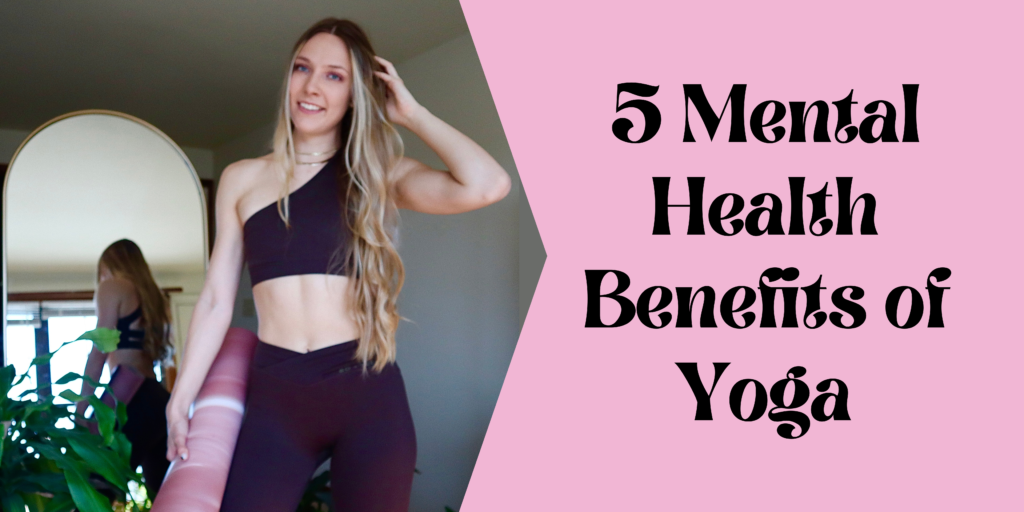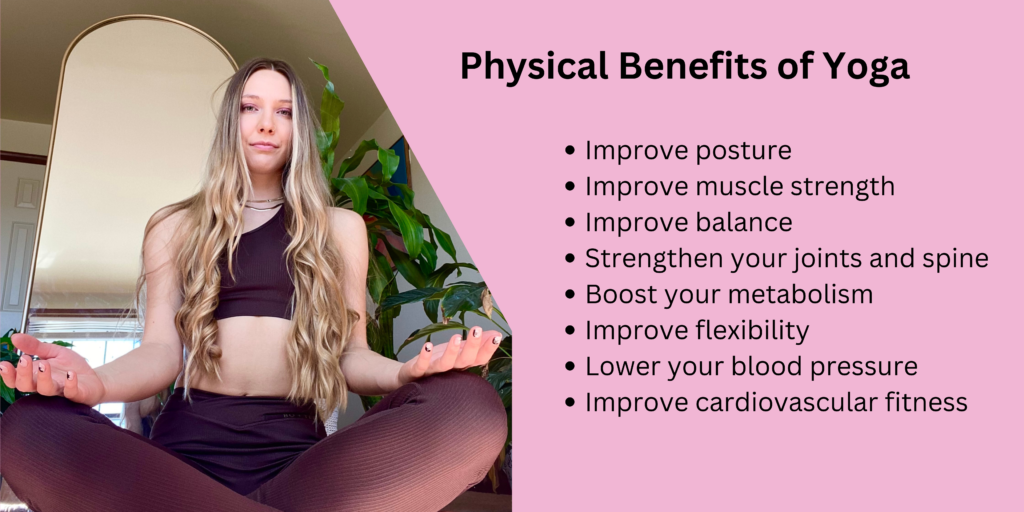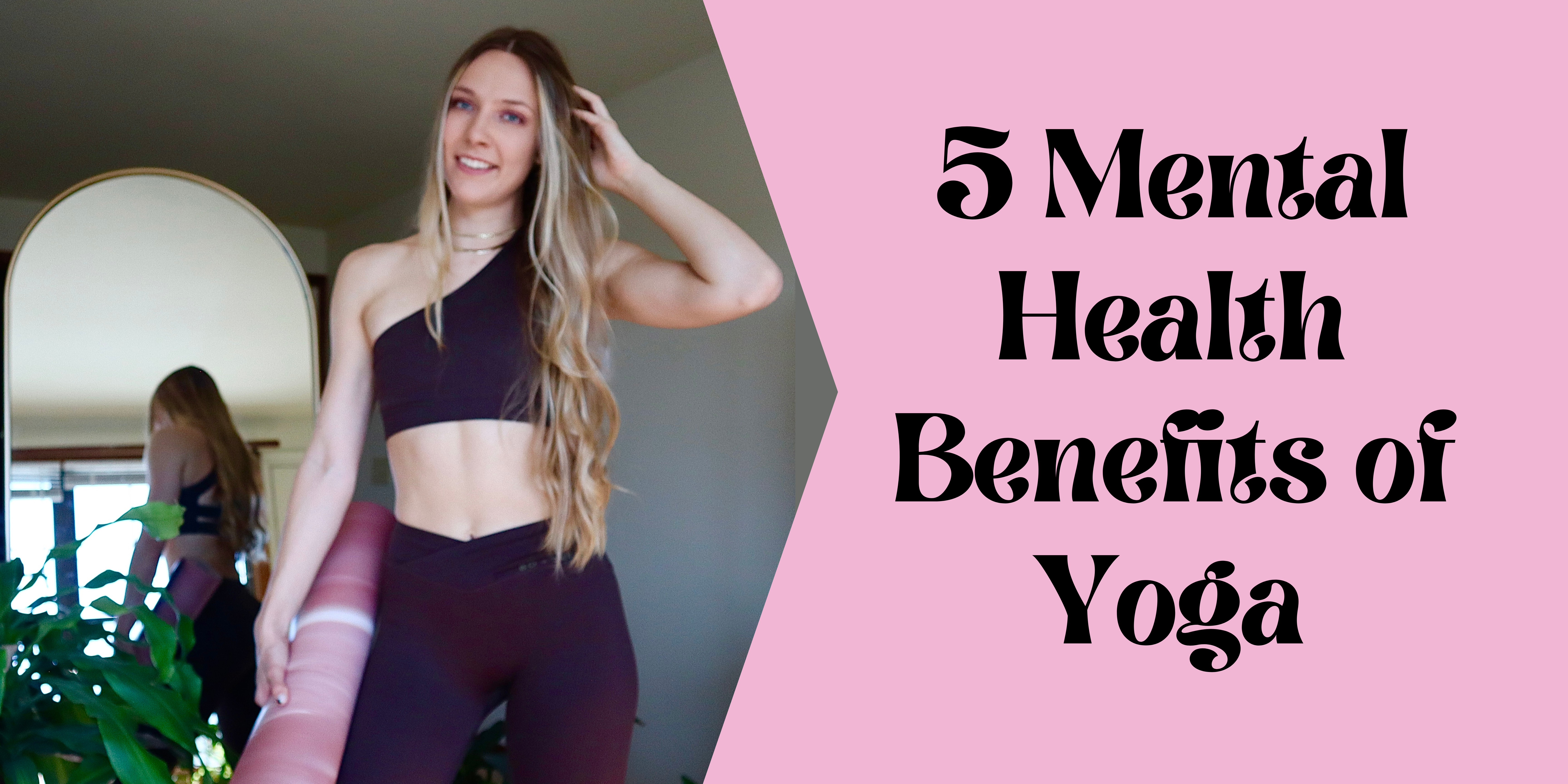
Yoga has soared in popularity within the past few decades, with Yoga studios popping up all over the country and different influential figures working to make the practice more mainstream. More than 36 million Americans now practice yoga, many of whom focus on the physical health benefits of the yoga movements. Though the origins of yoga date back more than 5,000 years ago with the foundations of the practice rooted more in its spiritual and psychological benefits.
The Connection Between Yoga and Your Mental State
Yoga is a unique practice in that it combines movement with mindful breathing and emphasizes a state of flow both physically and mentally. Most exercises will leave you feeling better than you started, with the release of mood-boosting brain chemicals, but yoga has some even stronger mental health benefits due to its focus on mindfulness and self-healing.
While there are many different types of yoga practiced, some of which put more or less focus on meditation and mindfulness, there are 5 main psychological benefits of yoga that health professionals and scientists have studied in recent years.
5 Psychological Benefits of Practicing Yoga
1.Release “Happy” Brain Chemicals
-Most workouts and exercises release chemicals in your brain that can boost your mood and mental state. Some of these “happy” brain chemicals include dopamine, serotonin, and norepinephrine. Yoga practices also help to release these chemicals in your brain, and with Yoga’s emphasis on mind/body connection you may feel even more conscious of the difference you feel post-yoga and the benefits these brain chemicals have on your mental state.
2.Manage Stress
-Yoga practices focus physically on the relaxing and tightening of muscles and slower, mindful movements. These types of movements can physically help reduce tension in your body. Depending on the type of yoga you are practicing, calming music and a peaceful atmosphere can also help to reduce your stress and make your worries melt away. Many yoga practices also include a savasana at the end, where you lie down on your back and relax your entire body and mind. It’s specifically meant to help you enter a meditative state and help to reset and restore your mind & body. All of these aspects of Yoga can help manage and reduce stress. The CDC conducted a study that found that 86% of people who practice yoga feel that it reduces their stress and makes them feel more relaxed.
3.Ease Depression Symptoms
-Scientists and Health Professionals have found that yoga can help ease depression symptoms. For depression, studies have found that yoga can help treat depression disorders with the natural release of those “feel-good” chemicals we talked about above, and providing a relaxing and low-impact way for people to move their bodies. Yoga is a practice that anyone can do, with beginners being able to reap the same benefits as those that are more advanced. There’s something for everyone with yoga and it can also help provide a sense of community and social connection if you practice yoga with other people or attend in-person classes.
4.Relieve Anxiety
-With its focus on mindfulness and breathwork, Yoga can often help relieve anxiety symptoms and provide grounding effects to those suffering from anxiety disorders. People suffering from anxiety often experience restlessness, irritability, hyperventilation, and ruminating and worried thoughts. Yoga practices can help ease some of these symptoms by focusing on breathwork that calms the parasympathetic nervous system and can relieve the shortness of breath and hyperventilation that anxiety can sometimes cause. It can also make your feel more grounded and reduce worried thoughts as you focus more on your body’s movement and its connection to your breath.
5.Improve Sleep Quality
-Yoga can help improve your sleep, both in quality and quantity. Researchers found that the breathwork done in yoga can stimulate your vagus nerve, which can ease your parasympathetic nervous system. Your PNS plays a big role in how well your body rests and heals. The mindfulness and breathwork used in yoga practices can also increase your melatonin levels, which will help you fall asleep faster and wake up less during the night. Some types of yoga that are more geared toward night-time practices and provide sleep benefits include restorative yoga, Hatha yoga and Yoga Nidra. All 3 of these are very low-impact and focused on relaxation and restoration after a long day.

Physical Benefits of Yoga & Its Connection to Your Psychological State
There are many physical benefits of yoga, some of the most common ones including:
- Improving posture
- Increasing your muscular strength
- Improving balance
- Strengthen your joints and spine
- Boost your metabolism
- Improve flexibility
- Lowering your blood pressure
- Improve cardiovascular and cardiorespiratory fitness
Working on improving your physical health can greatly impact your mental health as well. Aside from being able to build new muscle and improve your balance and flexibility, yoga and other forms of exercise can help you feel more energetic and mentally sharp. Exercise can improve your memory and help you concentrate. Physical activity, like yoga, stimulates the growth of new brain cells and can prevent mental decline as you age. In short, helping you stay young mentally and physically!
Improving your physical fitness can also boost your self-image and help you feel better about yourself, in turn improving your mental state. When you feel good, you have more energy and can potentially accomplish more! There are many benefits to doing Yoga and taking care of your mental and physical health. The mind and body are interconnected, and yoga is one way to help sync them and do something that’s great for your overall health.
The Impact of Yoga on Your Life
Whether you’re new to yoga or have been practicing it for years, tapping into the psychological and spiritual benefits of your practice can improve your mood post-yoga and even help improve your overall well being. It’s no secret that your mind and body are interconnected, and doing something that benefits both is a win-win.
Learn more about Yoga and other ways to take care of yourself and improve your health by checking out our other blog topics.
If you have any questions, feel free to submit a contact form to get in touch!
Resources:

